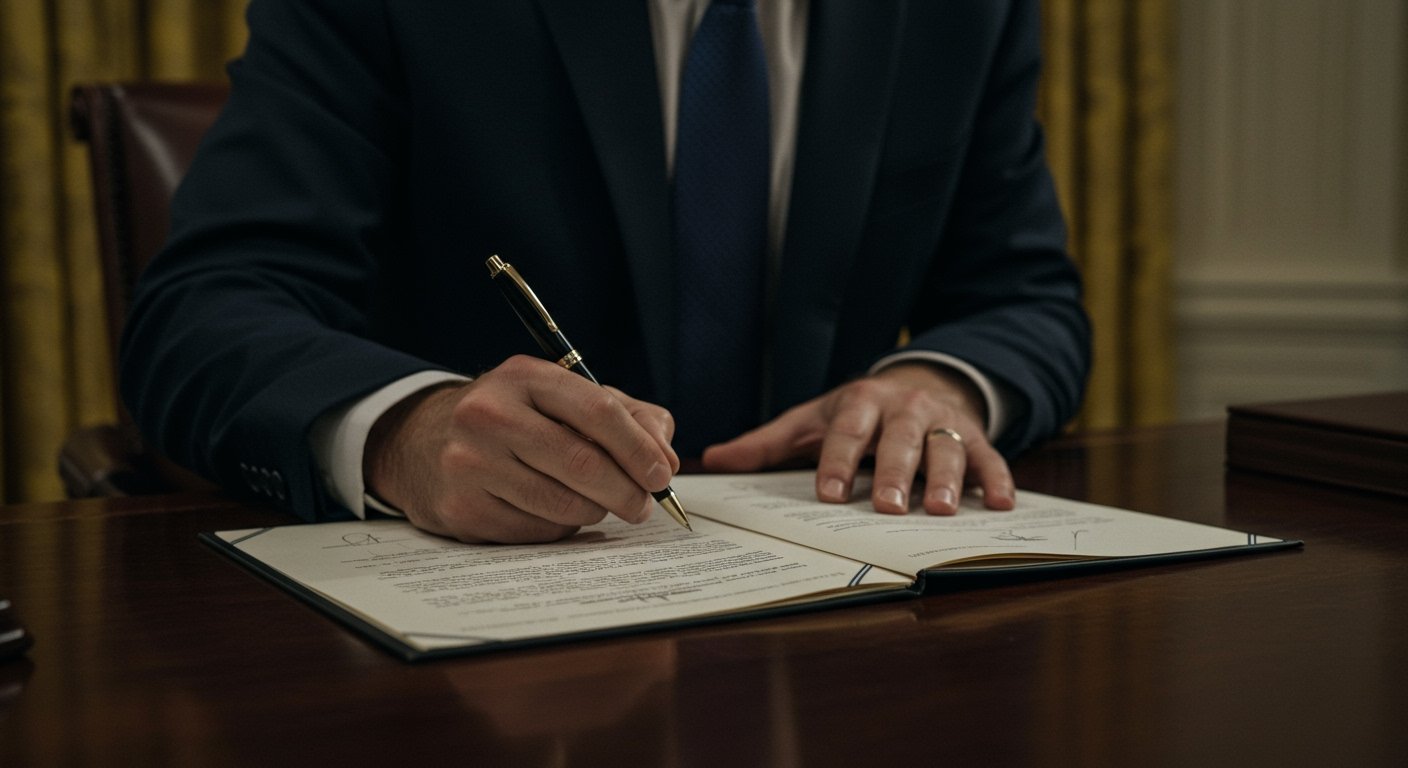WASHINGTON, D.C. – President Donald Trump is scheduled to sign into law a significant piece of domestic policy legislation, which he has described as “one big, beautiful bill,” during a ceremony at the White House on Friday, July 4, 2025, at 4 p.m. ET.
The bill’s passage marks a legislative victory for the administration, arriving after a closely contested vote in the House of Representatives on Thursday afternoon. The measure cleared the House with a vote of 218-214, seeing two Republican votes against the bill and no Democratic support.
According to White House press secretary Karoline Leavitt, the legislation incorporates key policy proposals that President Trump frequently championed during his campaign.
Key Provisions Detailed
The sweeping legislation includes several substantial changes across various domestic programs:
Child Tax Credit: One of the most significant measures is a permanent increase to the child tax credit. The credit is set to rise from its current level of $2,000 to $2,200 per child.
Medicaid Restrictions: The bill enacts tougher restrictions on the Medicaid program. These changes include the addition of work requirements for some able-bodied adults enrolled in the program. Furthermore, the frequency of eligibility checks for beneficiaries will be increased. The potential impact of these changes is substantial; the Congressional Budget Office (CBO) has estimated that these measures could result in as many as 11.8 million Americans losing their health coverage over the next decade.
Tipped Worker Tax Deduction: The legislation also provides a tax benefit for tipped workers. It allows many individuals who earn tips to deduct up to $25,000 of their tips and overtime pay from their taxable income. This provision is set to remain in effect until its expiration in 2028.
Supplemental Nutrition Assistance Program (SNAP): Changes are also incorporated into the SNAP, commonly known as food stamps. The bill expands existing work requirements for recipients. Additionally, it introduces a provision requiring states with higher payment error rates in their administration of the program to cover a portion of those costs.
Legislative Path and Political Context
The bill’s journey through Congress culminated in the narrow House vote. While the measure ultimately passed the Republican-controlled chamber, the lack of bipartisan support underscores the contentious nature of its provisions.
Both President Trump and Vice President Vance were reportedly deeply involved in the legislative process leading up to the bill’s passage, working to secure the necessary votes in the House.
Press Secretary Leavitt emphasized that the bill’s contents directly reflect promises made by President Trump on the campaign trail, presenting the signing as the fulfillment of those commitments to his base.
Understanding the Impact
The bill’s diverse provisions touch upon critical areas of the social safety net and tax policy. The permanent increase to the child tax credit represents a direct financial benefit intended to support families. Conversely, the changes to Medicaid and SNAP, particularly the expanded work requirements and stricter eligibility reviews, signal a significant shift in policy towards these programs, potentially impacting millions of low-income Americans.
The CBO’s projection regarding potential Medicaid coverage losses highlights the scale of the changes being implemented and is likely to be a point of focus for policymakers and advocacy groups in the coming months and years.
The tax deduction for tipped workers addresses a specific segment of the workforce, providing targeted tax relief until the provision sunsets in 2028.
Scheduled for the national holiday commemorating American independence, the signing ceremony at the White House is poised to be a highly visible event, underscoring the administration’s push to enact its domestic agenda through comprehensive legislative packages.





